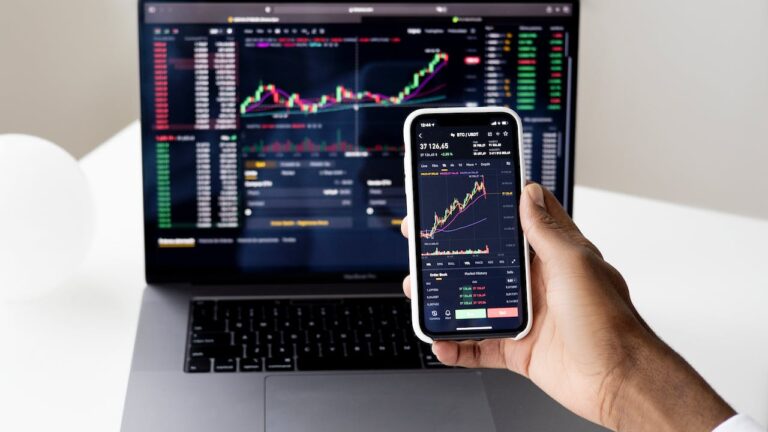In this detailed exploration, we dive into the intricacies of DSE, understanding its current trends, challenges, and the opportunities it presents to both local and international investors.
Understanding DSE: The Heart of Bangladesh’s Capital Market
The Dhaka Stock Exchange was established in 1954, and since then, it has been at the core of Bangladesh’s financial market development. With over 750 listed companies, the DSE provides a wide range of investment options across various sectors such as textiles, telecommunications, banking, pharmaceuticals, and more. The DSE is not just a financial hub but a reflection of the economic ambitions and growth trajectory of Bangladesh.
Current Economic Trends and Their Impact on DSE
The recent economic trends have been a mixed bag for emerging markets, and DSE is no exception. On one hand, the Bangladeshi economy has shown resilience with a strong GDP growth rate, a robust remittance inflow, and an expanding manufacturing sector. On the other hand, factors such as inflationary pressures, currency fluctuations, and global economic uncertainties have posed significant challenges.
Investors in the DSE have been keeping a close eye on monetary policies, both domestic and international, as these can have a profound impact on portfolio investments. The taka’s valuation against the dollar, interest rate scenarios, and the global economic slowdown due to the pandemic’s lingering effects are important considerations for market participants.
Regulatory Framework and Investor Protection
The Bangladesh Securities and Exchange Commission (BSEC) regulates the DSE, ensuring transparency, fairness, and efficiency in the market. The introduction of the Demutualization Act 2013 has been a significant step towards aligning the DSE with international best practices, separating ownership from management to mitigate conflicts of interest.
For investor protection, DSE has implemented several mechanisms, such as the Investor’s Protection Fund (IPF) and a rigorous surveillance system to monitor market activities. These measures aim to maintain investor confidence and ensure that the market operates within the bounds of the law.
Technological Advancements and the Digital Shift
Technological advancements have been at the forefront of DSE’s evolution. The exchange has embraced digital transformations, such as electronic trading platforms, mobile applications for investors, and an online IPO subscription system, which have significantly increased market accessibility and efficiency.
The recent implementation of a state-of-the-art Automated Trading System (ATS) has improved order processing speed and volume, allowing DSE to handle increased trading activities more effectively. These digital enhancements are essential in attracting tech-savvy investors and keeping pace with global market trends.
Sustainability and Corporate Governance
Sustainability and good corporate governance have become increasingly important to investors. Companies listed on the DSE are encouraged to adopt sustainable practices and demonstrate strong corporate governance. The DSE Corporate Governance Guideline is a testament to the exchange’s commitment to promoting a culture of accountability and transparency among its listed companies.
The DSE also encourages companies to engage in Corporate Social Responsibility (CSR) activities, understanding that sustainable business practices are crucial for long-term growth and investor interest.
Investing in DSE: Opportunities and Considerations
Investing in the DSE offers access to one of the fastest-growing economies in the world. For investors, this means potential opportunities for high returns. However, investing in emerging markets like Bangladesh also comes with its set of challenges, such as liquidity constraints and volatility.
Diversification is key for investors participating in the DSE. With a variety of sectors represented on the exchange, investors can spread their risk across different industries. Furthermore, the introduction of products such as mutual funds and bonds offers additional options for investment portfolios.
The Role of Foreign Investment
Foreign investment plays a crucial role in the DSE, contributing to the market’s liquidity and depth. The government of Bangladesh and the BSEC have been proactive in creating an investor-friendly environment, with policies to encourage foreign direct investment (FDI). These include tax incentives, repatriation of profits, and reduction of bureaucratic hurdles.
Outlook and Future Projections for DSE
Looking ahead, the DSE appears to be poised for growth. The planned introduction of new financial instruments, such as derivatives and commodities, promises to diversify the market further. The establishment of the Central Counterparty Bangladesh Limited (CCBL) is set to mitigate settlement risks, enhancing market integrity.
Moreover, the government’s ongoing initiatives to improve the country’s infrastructure, energy sector, and digital capabilities are expected to contribute positively to the growth of companies listed on the DSE, and in turn, to the investors who back them.

